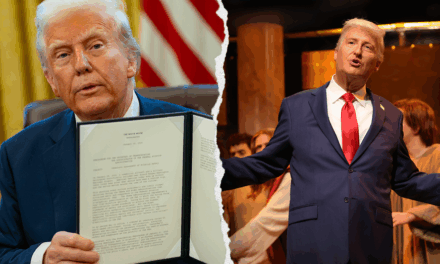In a recent segment on CNN, a prominent commentator stirred controversy by suggesting that authorities should investigate the citizenship status of Donald Trump’s children. This remark, while seemingly innocuous to some, has reignited discussions around the former President’s family and the broader implications of citizenship laws in the United States.
The discourse began when the commentator, during a discussion about immigration policies and citizenship, posed the question of whether the children of Donald Trump, namely Donald Jr., Ivanka, and Eric, possess valid citizenship statuses. This inquiry raised eyebrows and prompted multiple responses from both sides of the political spectrum.
The roots of this debate can be traced back to various narratives surrounding immigration and citizenship in the U.S. Trump, known for his hardline stance on immigration, has often been criticized for his policies and rhetoric. Proponents of immigration reform argue that Trump’s policies disproportionately affect marginalized communities and call for a re-evaluation of citizenship laws to ensure fairness and equity.
However, suggesting that Trump’s children, all born in the U.S., be subjected to scrutiny regarding their citizenship has been interpreted by many as politically motivated. Critics argue that this line of questioning is not only an unnecessary attack on Trump and his family but also reflects a deeper, troubling trend in American politics where lineage and familial backgrounds are used as tools to question someone’s standing in society.
From a legal standpoint, Trump’s children are eligible for citizenship by birthright due to the 14th Amendment of the United States Constitution, which grants citizenship to all individuals born on U.S. soil. Nonetheless, the suggestion to investigate their status implies a more significant concern regarding the intersection of power, privilege, and legal frameworks surrounding citizenship.
Supporters of the commentator’s proposal argue that transparency about citizenship is essential in fully understanding the landscape of immigration in the U.S. They believe that the focus should expand beyond immigrant status to encompass all aspects of citizenship, including those of individuals in influential positions. This perspective raises the question of whether America’s leaders should be held to higher standards concerning their legal standing and the standings of their families.
In stark contrast, opponents view this notion as an attempt to undermine the legitimacy of Trump’s family, suggesting that such actions could lead to a slippery slope where familial ties of other prominent figures are also scrutinized. This could foster a culture of suspicion where individuals are consistently judged not by their actions but by their lineage.
The discussion further feeds into the broader narrative of partisanship in America, where even the mere suggestion of investigating the President’s family leads to fierce debates about loyalty, ethics, and what constitutes an acceptable political threshold. Indeed, this has left many asking where the line should be drawn when it comes to questioning an individual’s citizenship status, especially in the context of a public figure.
The implications of such proposals carry significant weight, impacting not only the individuals directly involved but also the political landscape as a whole. In times of heightened political tension and polarization, discourse that calls for investigations into a person’s legal status can escalate quickly, driving wedges between different groups and perceptions.
As this conversation continues to unfold, it will be essential to consider the potential consequences of investigating individuals based on their familial ties rather than their own actions. Should investigations into citizenship become a political tool wielded against those in the public eye, it could lead to a new era of political maneuvers reminiscent of more authoritarian practices seen in other regimes worldwide.
Moreover, this situation raises crucial questions about the responsibilities of media commentators and the extent to which they should engage in or promote such investigations. Responsible journalism and commentary are founded on the principles of fairness and accountability, and the ethical implications of pursuing such narratives cannot be ignored.
As Americans digest these events, the call for a top-to-bottom analysis of citizenship laws and their applications is likely to gain momentum. Many observers believe that there needs to be a more profound exploration of what citizenship means in the contemporary landscape of U.S. society, especially in light of changing demographics and ongoing debates over immigration policy.
In the coming days, as conflicting views continue to permeate public opinion, the dialogue surrounding Trump’s children and their citizenship status may serve as a litmus test for broader attitudes towards immigration and identity in the United States. As citizens, lawmakers, and commentators engage in this discourse, the challenge will be to foster an environment where constructive dialogue prevails rather than one laden with suspicion and divisiveness.
Ultimately, this suggested investigation into the citizenship status of a former president’s children opens up a Pandora’s box of questions that merit further inquiry beyond partisan lines. As with all issues surrounding citizenship and immigration, the need for understanding and empathy should remain at the forefront of the national conversation.
The battle for identity and belonging in the United States is ongoing, and issues like these serve as reminders of the complexities and intricacies involved in citizenship matters. At the heart of these discussions is a collective hope for a future where all individuals, regardless of their background, can find common ground and share in the ideals of freedom and acceptance that underpin the nation’s founding principles.
































